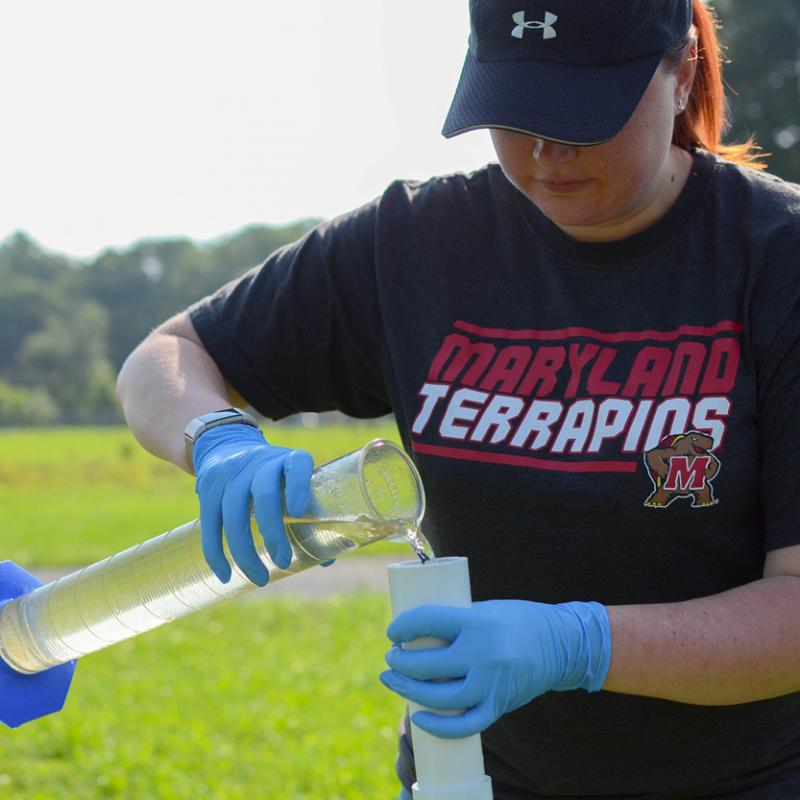
Understand and mitigate environmental hazards to promote human health and well-being
The PhD in Environmental Health Sciences explores the impacts of environmental hazards (air, water, soil and food) on human health in the context of sociocultural, economic, work and family environments.
Perfect for...
- An individual interested in a terminal research degree for academic, federal or state careers in environmental public health
- Persons with overlapping interests in engineering, medicine, health policy, agriculture, epidemiology, computer modeling, chemistry, microbiology, or geography
Career Paths
- Employee at a state department of health
- Federal agency environmental leader
- Academic researcher
- Industry researcher
Program Overview
Students in the PhD program in Environmental Health Sciences master an essential core of knowledge in environmental and occupational health, epidemiology and biostatistics. Elective courses and rotations with faculty in field studies and laboratories offer students the knowledge and skills needed to specialize within the broader area of environmental health and become independent researchers.
Click here to view our GEOH programs flier.
See all Global, Environmental, and Occupational Health student resources.
particle (PM 2.5) air pollution
each year
Graduate courses include
- core courses within environmental health, epidemiology and biostatistics;
- supporting courses in environmental health research, ethics, public health, and grant writing;
- specialized courses selected within the research foci; and
- dissertation credits.
Students admitted to the doctoral program in Environmental Health Sciences will complete 61 credits, including faculty rotations and a dissertation.
The program can be completed on either a full- or part-time basis. It is anticipated that students will complete more than the minimum number of credits.
*In order to meet the academic standards of MIAEH, Students must achieve a grade of B- or higher in all required courses (ie: all MIEH and SPHL courses). Failure to meet this requirement will result in the need for a student to retake a course in which they earn a C+ or lower.